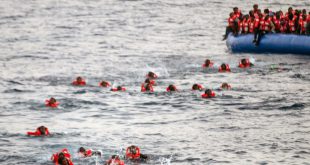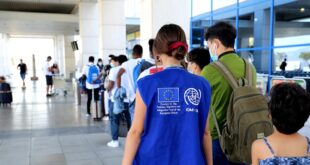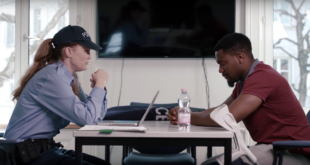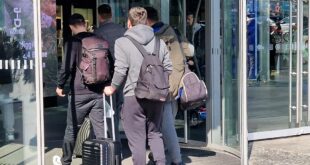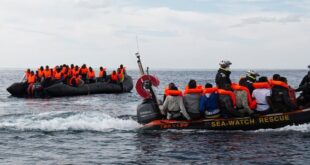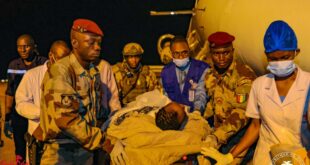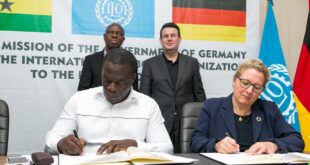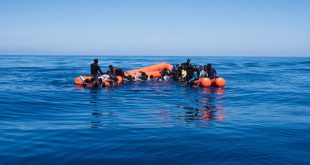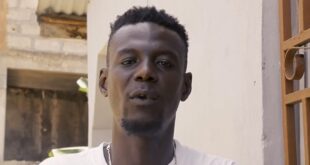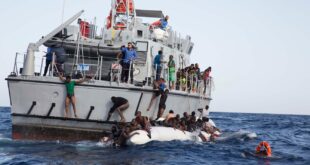In commemoration of World Migrant and Refugee Day on 15 January, a young Sengalese man named Seny Diallo tells his story. After he arrived in Italy by sea, he went back to Senegal to raise awareness among young people about the dangers of irregular migration.
After having been forced to cross the Mediterranean to reach Italy aboard a migrant boat with dozens of other people, and after having lived for years in a migrant reception centre in Italy, Seny Diallo, 24, of Senegal, has decided to return to his country of origin. He plans to tell young people there about his experience in reaching Europe, to inform them about the dangers of the journey, which includes the desert, violence, exploitative people and life-threatening risks.
Forced to go to Italy
“In my country, I was in school studying languages and literature,” Seny told ANSAmed. “I had a friend in Libya who had a restaurant, and during the holidays he called me to ask me to go there and give him a hand”. So Seny arrived in Libya, and stayed with his friend only two or three days, before tragedy struck.
“One day some robbers came to the restaurant. I was late, so I was outside the building when I heard gunshots. I hid, and after the criminals left I found my friend in the restaurant, dead.”

After this terrible act of violence, Seny said he fled the scene and wanted to go back to Senegal. He turned to a smuggler in order to return home. “He said the only solution for me was to go to Italy,” Seny said. Therefore, he was forced by events to give the smuggler his savings and depart for Italy. “I arrived in October 2013, together with 87 other people,” he said.
Returning to Senegal to help young people
After arriving on the island of Lampedusa, Seny was transferred to a reception centre in Castellammare del Golfo on Sicily. He stayed there for a year and a half, after having filed his asylum request. He was then transferred to a centre for asylum seekers in Aidone, managed by the Roman Catholic Salesian association Don Bosco 2000, which works in migrant reception.
“I spoke three languages, so I helped the association, then I did an internship for four or five months,” he said. He said the association trusted him, so it hired him as a worker and mediator. In the centre, Seny saw many migrants arrive, but above all, he realised how many hadn’t made it, those who died at sea. “The Mediterranean has become a cemetery,” he said. That’s when he decided to create an awareness project in Senegal, together with the Don Bosco association and Vis, another Salesian organisation.
Seny returned to Senegal, and the first pilot project began there in November 2016. “We went to the schools, I talked about my journey. The young people don’t know what the experience is like for those who have left, the days in the desert, the difficulties,” he said. Seny said raising awareness isn’t enough. “To make the young people avoid emigrating, we created a local development project, in villages and cities, where we trained young people to become entrepreneurs,” he said.
“If an Italian comes here, no one believes him. I’m African, I lived this experience, I have a different value for them, they listen to me. We can save a lot of people this way,” he said. Seny said if he encountered a young person who wanted to reach Europe, he would tell them “not to go” so as to avoid “facing a journey where they mistreat you, they exploit you”. To make them believe, he said he brings his example and the story of the many who have died trying to cross the Mediterranean. “We can’t stop them all, but we have managed for some,” he said.
© ANSA
 THE AFRICAN COURIER. Reporting Africa and its Diaspora! The African Courier is an international magazine published in Germany to report on Africa and the Diaspora African experience. The first issue of the bimonthly magazine appeared on the newsstands on 15 February 1998. The African Courier is a communication forum for European-African political, economic and cultural exchanges, and a voice for Africa in Europe.
THE AFRICAN COURIER. Reporting Africa and its Diaspora! The African Courier is an international magazine published in Germany to report on Africa and the Diaspora African experience. The first issue of the bimonthly magazine appeared on the newsstands on 15 February 1998. The African Courier is a communication forum for European-African political, economic and cultural exchanges, and a voice for Africa in Europe.




